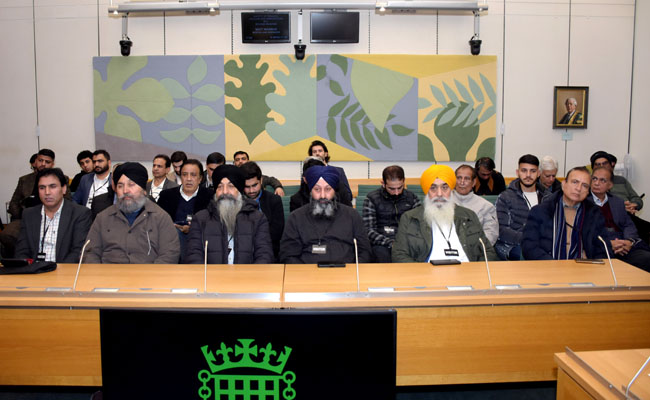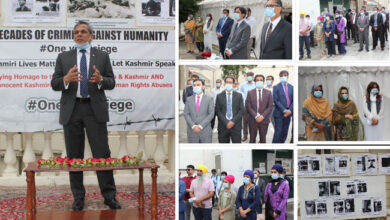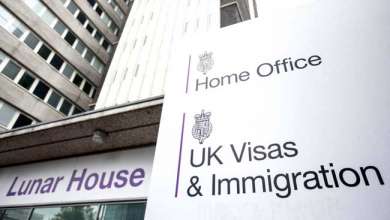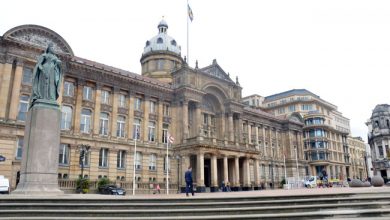British legislators call the Indian Supreme Court’s decision on Article 370 against the UN resolutions
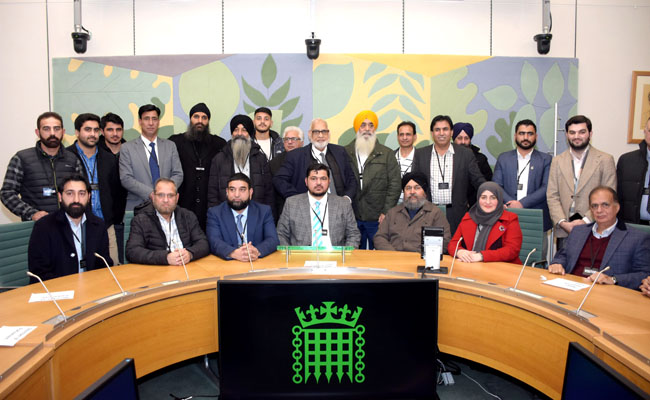
LONDON – British lawmakers, activists, practitioners, and peace activists held discussions on Indian Illegally occupied Jammu and Kashmir in the UK Parliament.
The discussions were held to mark International Human Rights Day and the Indian Supreme Court’s decision to uphold the Modi’s BJP government’s revocation of Article 370. The event reminded the international community of its responsibility to press for a free and fair plebiscite in Kashmir.
Tehreek-e-Kashmir UK’s conference was chaired by Paul Bristow MP and hosted by Fahim Kayani, President of the UK-based diaspora group.
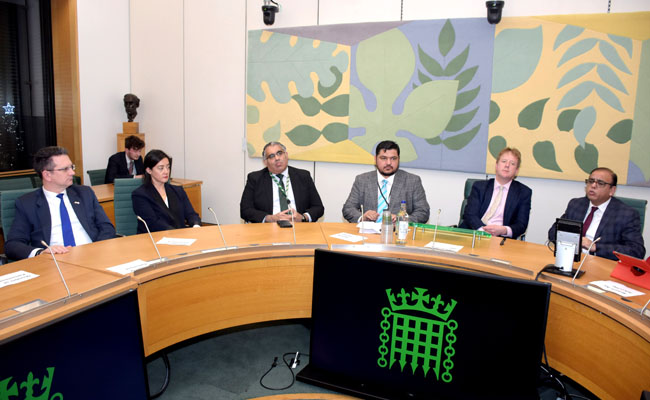
British lawmakers attending included Kate Hollern, Jess Phillips, Sarah Owen, Steve Baker, Sara Britcliffe, Lord Qurban Hussain, Muhammad Yasin, Tahir Ali, Tan Dhesi, Debbie Abrahams, Marco Longhi and the leadership from Indian occupied Kashmir Muzzamil Ayyub Thakur and Hameed Lone , Tehreek-e-Kashmir UK information secretary Rehana Ali Advocate , Kashmiri leader Ashraf Chughtai , President TeK Birmingham Ch Ikram ul Haq, British Sikh Leader Gurcharan Singh and others had a detailed discussion on the Kashmir issue which has turned into a nuclear flash point in South Asia with three nuclear powered nations bordering the UN-designated disputed territory.
Paul Bristow condemned India’s continued illegal actions in Kashmir and urged those who support human rights of Palestinians to show the same support for the people of Indian Occupied Kashmir.
Fahim Kayani commended Paul for his continued support for Kashmir and for tirelessly maintaining the importance and profile of Kashmir within the Conservative party.
“I wish the Supreme Court of India had courage to visit UN resolutions on Kashmir,” Kayani told the conference. “No assembly has any power to decide on behalf of the people of Jammu and Kashmir. So, neither the Indian parliament nor the President of India have any sovereignty over Kashmir,” he added.
Kate Hollern talked about the importance of human rights and the need to push the UK government to uphold those rights in Indian Occupied Kashmir, particularly after India’s Supreme Court ratified the abrogation of article 370 by Modi’s government.
Tahir Ali dismissed the Indian Supreme Courts ruling and said the banana court had no right to change the disputed nature of Indian Occupied Kashmir.
Jess Phillips lamented India’s continued illegal occupation and said the Supreme Court’s ruling was an extension of India’s continued disregard of international law.
Debbie Abrahams expressed her profound disappoint on Indian supreme courts decision, and stated it to be undemocratic, breaching various UN resolutions.
Sarah Owen recognised the decades long injustices on the people of Indian Occupied Kashmir and the impact on generations of Kashmiris.
Tan Desi reiterated his support for the right of self-determination for the people of Kashmir, promising to continue to heed his constituents’ concerns, especially after his personal experience in India and the aggression he faced for his stand. He condemned the Indian Supreme Couts ruling and reminded the audience that even members of the Congress Party were appalled at the BJP’s revocation of article 370.
Lord Qurban said that it’s a shame that while human rights abuses are being committed right in our face, there is no action, particularly by the UNSC, to implement laws and protect people. He emphasised that the Kashmir issue did not start with Article 370 and certainly didn’t protect Kashmiris, and that the only thing that matters is the UNSC resolutions protecting the peoples of Kashmirs right to self-determination.
Sara Britcliffe encouraged the participants to continue engaging on the Kashmir issue with elected representatives, and spoke about her experience visiting Azad Kashmir and hearing testimonies.
Muhammad Yasin mentioned that Pakistan and India are nuclear powers and that it was necessary to resolve the issue of Kashmir according to United Nations resolutions and international law, especially after the Supreme Courts ruling, and must include Kashmiris in negotiations. He stated the British government has a moral responsibility towards the people of Kashmir after partition.
Marco Longhi stressed that the lives of the people of Kashmir certainly have not improved since the revocation of Article 370 and reasserted his promise of condemning human rights violations.
Steve Baker encouraged people to contact their elected representatives and appreciated his own constituents for writing to him expressing their concern about India’s actions in Kashmir.
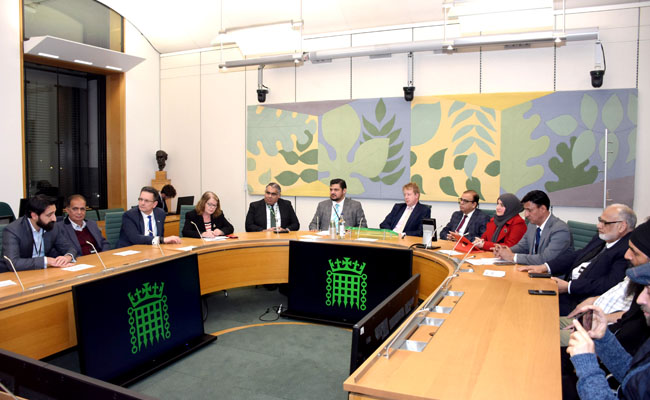
The conference later hosted a London resolution on Kashmir, read by Fahim Kayani, which concluded with the participants dubbing the Indian Supreme Court’s decision to uphold Modi’s decision to end the special status of Kashmir as an “open contravention” of the UN resolutions.
According to the resolution, they expressed concern over the graveyard silence enforced by Indian military regime in Kashmir by heightening surveillance, every day raids, arbitrary arrests and extra-judicial kidnappings.
They called out the issuance of domicile certificates to non-Kashmiris, warning that by such moves, India was artificially changing demography of the UN-designated disputed territory.
The resolution expressed concern over pro-longed illegal detention of Kashmiri resistance leadership including Masarat Alam Bhat, Shabir Ahmad Shah, Muhammad Yasin Malik, Syedah Asiya Andrabi,, Nahida Nasreen, Sofi Fehmeeda, Ayaz Akbar, Peer Saifullah and others. They sought their immediate release.
Calling for respect to international law and UN Charter, the participants said this was the way forward to press India to allow Kashmiris decide their political fate through a fair and free plebiscite as promised by the international community since 1948.
